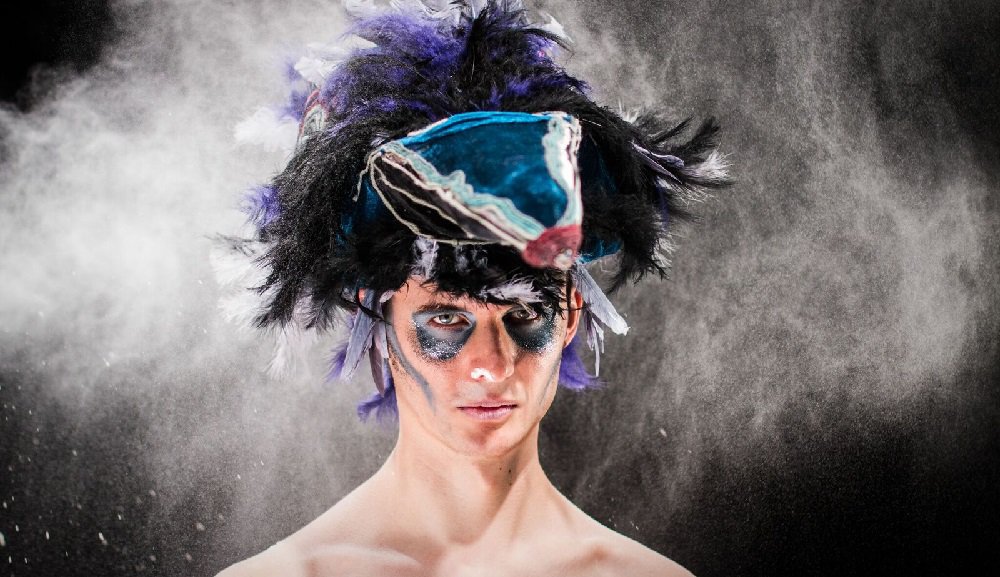‘I saw people close to me swallowed up by clubbing and addiction – but this show doesn’t preach’
By Will Stroude

As award-nominated gay opera ‘Boys of Paradise’ returns to EGG London for a 12-show run next month, the show’s writer Dominic Kimberlin and composer Vahan Salorian discuss their virtual maze of drink, drugs and dark rooms in their “truly genre-breaking”, Vauxhall-inspired production, returning to EGG London for a 12 show run.
Vahan: The idea to write an opera about gay-clubbing came about in my second year of uni. I’d got over my own ‘Vauxhall phase’ and the bright-eyed enthusiasm of being young and out for the first time in the big city. However, some of the people I used to go out in Vauxhall with never got over that phase, and I have ended up watching people close to me getting swallowed up by it all – drug addiction etc.
Originally the need to vent about this in some kind of healthy way was what first spawned the idea of writing an opera. However, as time went on and Dom talked some sense into me I realised the last thing we should do with this opera was preach any particular message – just present a picture of a night out in one of these places, including the inevitable trip to the bathroom to powder your nose, the accidental stumbling into a dark room and so on. Our characters don’t even have proper names – Twink, Cub and Fag Hag are the three friends who enter ‘Paradaezia’ (our fictional club) at the beginning of the opera.
I think the environment of a Vauxhall nightclub screams opera. It’s the farcical nature of it, the extreme highs and lows, the drug-induced euphoria and the often more sinister undertones and activities happening in the shadows. I’ll be the first to admit that I find contemporary opera, or opera in general, hard to connect with. Plots move slowly and time often drags on. So the challenge was could I write an opera that I’d enjoy watching myself, or at least not be bored by.
Dominic: When Vahan asked me to write an opera with him, I knew we’d finally made it. Then, it struck me. I had no clue how to do it. Whilst Vahan merely had to make a montage of somewhat catchy noises, I needed to create a universe from scratch. Sure, he’d had personal experiences that he wanted to shoehorn in somewhere, but a universe needs more than that. What we needed was a myth.
Now, I’ve never managed to watch an entire opera, but I’m pretty confident that they all revolve around a central myth which structures the emotional journey of the protagonists. At least, the good ones do, like this one. At the time, I was trying to become a god so the myth which appealed to me most was that of the phoenix. It could live forever, there was only ever one, and it was on fire. It had every quality I ever wanted.
Vahan: At the time when Dom and I first started talking about the project I had lecture at university by Julian Anderson, a composer who had just finished his commission for English National Opera. He told us how almost all great operas have a basis in some kind of classical mythology- and that is how people were able to enjoy and follow them, that these were ancient stories that everyone knew already.
Dom was studying old English mythology as part of his English degree, and he proposed we base our plot around the Phoenix myth. This fit perfectly: The story he found tells of this magical bird that is adored by all other birds in the bird kingdom (called Pradaezia). However, there are three birds who envy the phoenix and try to tempt him from greatness. They are Vulture, Crow and Peregrine. In the opera these ‘temptations’ are drugs. During the show there is a super camp song called the ‘cocaine waltz’, which takes place in the bathroom. The phoenix avoids these temptations and burns brighter and brighter, burns out and is reborn.
For me, and my personal connection with people who I had watched burn up and burn out, I loved this idea of something new arising from the ashes – not only for the imagery of the ash as coke or other drugs, but also that once a young guy burns out in these environments there’s always someone new to take their place, and the cycle continues. The opera is funny though!
Definitely our main aim was always to be entertaining and fun. That’s also why the immersive aspect is so important. In ‘Boys of Paradise’ the audience are in Paradaezia. The action happens all around you, you take shots with the cast, dodgy patrons offer you pills and powders on the dance floor (fake I promise!), you have a dance and follow our characters around the club as the action takes place. To put the opera on in an actual nightclub like EGG is the dream and just adds to the realism. I hope avid opera lovers will come along to try something a bit new, and people who’ve been put off by opera in the past give us a chance- if nothing else you’ll leave having been grinded against by an opera singer!
Boys of Paradise is at EGG London from 15-21 October, with performances at 7:30pm and 9:30pm every night. Tickets available at £18 (£12 for concessions) via Tête à Tête.

